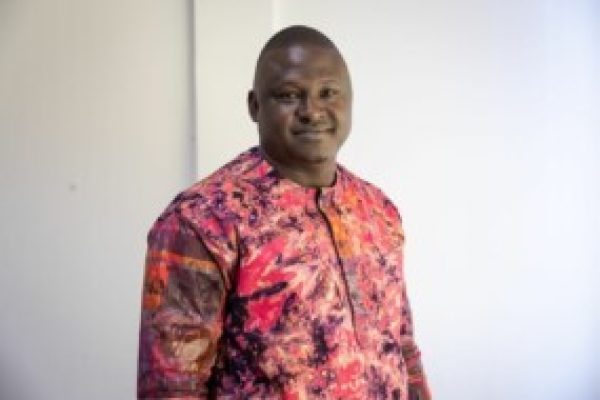English | Français | Português
 Mahamadou Savadogo is an Africa Center alumnus and security expert specializing in violent extremism, radicalization in the Sahel, and transnational crime. He has collaborated with the African Center for the Study and Research on Terrorism (ACSRT), where he developed a training manual on preventing violent extremism across Africa. Currently, he is the Managing Director of GRANADA Consulting and previously, he represented Burkina Faso within the Navanti Group. He has also consulted for the World Bank on safety risk assessments and now teaches at the Bioforce Regional Training Center for Africa in Dakar, Senegal. Our interview with him took place on the sidelines of a roundtable on the role of collaborative policing in countering violent extremism, held in Nouakchott, Mauritania.
Mahamadou Savadogo is an Africa Center alumnus and security expert specializing in violent extremism, radicalization in the Sahel, and transnational crime. He has collaborated with the African Center for the Study and Research on Terrorism (ACSRT), where he developed a training manual on preventing violent extremism across Africa. Currently, he is the Managing Director of GRANADA Consulting and previously, he represented Burkina Faso within the Navanti Group. He has also consulted for the World Bank on safety risk assessments and now teaches at the Bioforce Regional Training Center for Africa in Dakar, Senegal. Our interview with him took place on the sidelines of a roundtable on the role of collaborative policing in countering violent extremism, held in Nouakchott, Mauritania.
How does the Africa Center’s model, mission and vision contribute to promote peace and security?
Mahamadou Savadogo (MS): First of all, I’d say it’s excellent that the Africa Center is interested in the dynamics of security in Africa and the search for peaceful solutions to stabilize all the countries on the continent. Adopting a holistic, global vision not only enables us to coordinate different approaches across the regions of Africa but also to propose solutions tailored to the specific features of each region. For me, this global approach is extremely beneficial, as it often fills the gaps noticed in our states and regions. Let’s take the example of violent extremism, a subject we’ve been discussing over the past three days: to counter this threat, a regional vision is needed. A purely national approach will not be sufficient. The Africa Center’s approach is therefore ideal and perfectly aligned with the current challenges of security and peace in Africa.
What advice would you give to up-and-coming security sector officials?
MS: I would advise them to adopt the same vision as the Africa Center, namely, a holistic and regional vision for solving security problems, which are becoming increasingly transnational. It is also crucial to involve local communities, as they now play a central role if we want to achieve our objectives. Finally, it is essential to reform and to structure the security sector in such a way that good governance is the driving force behind it, to better cope with new threats.
What do you expect from the Africa Center, and do we meet your expectations?
MS: What I expect from the Africa Center is that it should continue to act as a link between African experts working on various dynamics, and I think it does this very well. What could further improve this aspect is to maintain this link and create a system capable of reflecting, even on an ad hoc basis, on the problems that may arise in some regions of Africa.
During today’s event, this roundtable, did you make any new contacts and do you plan to keep them?
MS: Yes, I’ve made new contacts, and I intend to keep them and even make more. This gives us a much broader perspective and helps us fill in the gaps in our understanding of certain dynamics. This is very important, and States as well as international organizations should adopt the same approach so that, together, we overcome these various threats.
Has the Africa Center for Strategic Studies helped you hone your skills and knowledge?
MS: Absolutely. Confronting other experts enabled me not only to fill my gaps and improve my knowledge but also to hone my understanding of the complex dynamics governing other regions of the African continent. Exchanges with these specialists have enriched my perspective on the issues and challenges encountered elsewhere while offering valuable insight into best practices and innovative approaches implemented in diverse contexts.
In addition, I had the opportunity to share our experience living in the Sahel, a region facing unique challenges in terms of security, development and resilience. This experience, with its lessons learned and specific adaptations, can provide valuable insights for other regions, such as coastal countries or East Africa, facing similar or different situations. The opportunity to contribute to an exchange of knowledge and perspectives is an extremely enriching experience for me. So, I’m eager to repeat this type of encounter as often as possible, to continue learning and sharing.

